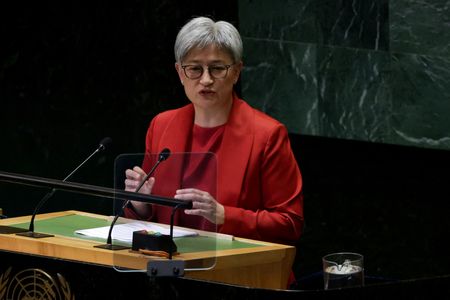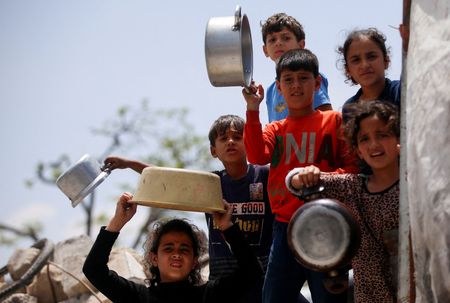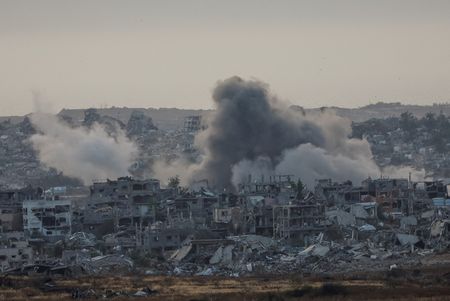ADEN (Reuters) -Israel struck Yemen’s Red Sea ports of Hodeidah and Salif on Friday, continuing its campaign to degrade Houthi military capabilities and warning that the group’s top leader could be targeted if attacks on Israel persist.
The Houthis have continued to fire missiles at Israel in what they say is solidarity with Palestinians in Gaza, although they have agreed to halt attacks on U.S. ships.
Israel has carried out retaliatory strikes in response, including one on May 6 that damaged Yemen’s main airport in Sanaa and killed several people.
On Friday, the Israeli military said it dropped over 30 munitions on Houthi targets in its eighth such attack. It said the ports of Hodeidah and Salif were being used to transfer weapons, reiterating its warnings to residents of those areas to evacuate.
The Israeli strikes killed at least one person and injured nine, the Houthi-run health ministry said in a statement.
Residents in Hodeidah said they heard four loud booms and saw smoke rising from the port following the strikes.
Israeli Prime Minister Benjamin Netanyahu and Defence Minister Israel Katz said in a joint statement that they would hunt down the Houthis’ top leader, Abdul Malik al-Houthi.
“If the Houthis continue to fire missiles at the State of Israel, they will be severely harmed, and we will also hurt the leaders,” they said, adding that al-Houthi could join the list of militant figures killed by Israel, such as Hamas’ Yahya Sinwar and Hezbollah’s Hassan Nasrallah.
Mohammed Ali al-Houthi, a senior group figure, described the Israeli threats as “illusions”, saying on X that they were aimed at buying time by setting “unattainable goals.”
The Houthis are part of Iran’s so-called “Axis of Resistance” against Israeli and U.S. interests in the Middle East, alongside Hamas in Gaza and Hezbollah in Lebanon. About 60% of the Yemeni population lives under their control.
Since the start of the Israel-Hamas war in October 2023, the Houthis have launched dozens of missile and drone attacks toward Israel, most of which have been intercepted or landed short.
(Reporting by Hatem Maher and Mohammed Ghobari; Editing by Toby Chopra, William Maclean and Mark Porter)









